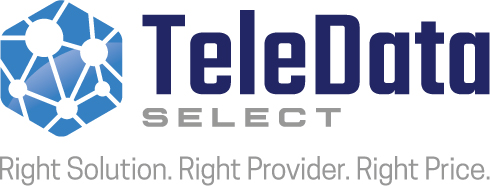As businesses grow and communication becomes more complex, choosing the right phone system is more critical than ever. Two primary options are available: cloud-based (hosted) phone systems and on-premise PBX (private branch exchange) systems. Each comes with distinct advantages and drawbacks, particularly when it comes to flexibility and control.
Here’s a comparison to help you determine which solution best fits your organization’s needs—with examples from real businesses.
What Is a Cloud-Based Phone System?
A cloud phone system (also known as VoIP or hosted PBX) runs over the internet and is managed by a third-party provider. You access it via a web portal, with all infrastructure hosted off-site.
Examples:
-
RingCentral, Nextiva, and Zoom Phone are popular cloud-based providers.
-
A remote marketing agency uses RingCentral to manage 30 team members working from different states, requiring minimal hardware or IT staff.
What Is an On-Premise Phone System?
An on-premise system is hosted on your company’s physical servers and maintained by your internal IT team. It usually requires upfront investment in hardware and software.
Examples:
-
A law firm installs an Avaya IP Office system at its main location, maintaining full control of data and call routing.
-
A hospital uses an on-site Cisco PBX system to integrate with its paging and emergency alert infrastructure.
Cloud Phone Systems: Pros and Cons
✅ Pros (Flexibility)
-
Remote Access: Ideal for distributed or hybrid teams; employees can make/receive calls from anywhere.
-
Scalability: Add or remove users instantly without purchasing new hardware.
-
Automatic Updates: Software upgrades and security patches are managed by the provider.
-
Lower Upfront Costs: No need for servers or dedicated IT staff to manage the system.
❌ Cons (Less Control)
-
Dependent on Internet: If your internet connection fails, your phone service could too (though mobile backups are possible).
-
Limited Customization: Fewer options for deep integrations or advanced call routing than with some on-premise systems.
-
Recurring Costs: Monthly subscription fees can add up over time.
On-Premise Phone Systems: Pros and Cons
✅ Pros (More Control)
-
Customization: Deep integrations with internal systems (CRM, paging, security) are more feasible.
-
Data Ownership: You have full control over your call data and recordings—important for compliance-heavy industries.
-
Reliability: Less reliant on internet connectivity; many systems work independently from the cloud.
❌ Cons (Less Flexibility)
-
High Initial Cost: Requires investment in hardware, installation, and ongoing maintenance.
-
Limited Scalability: Adding users often means purchasing new hardware and additional licenses.
-
IT Burden: Requires internal resources for maintenance, backups, and troubleshooting.
Real-World Comparisons
Example 1: Cloud Flexibility for Startups
A tech startup with 15 employees chooses Zoom Phone. They hire rapidly and have a hybrid team. With a cloud system, they can add new users within minutes, and team members can work from laptops or mobile devices without hardware setup.
Example 2: On-Premise Control for Healthcare
A medical clinic with strict HIPAA compliance needs full control over data and call routing. They use an on-site PBX system with integration into their electronic health records (EHR). The in-house IT team manages updates and security internally.
Example 3: Hybrid Solution for Growth
A mid-sized company with a headquarters and remote workforce uses a hybrid model: an on-premise PBX at HQ integrated with cloud extensions for remote employees. This gives them both control and flexibility.
Which One Is Right for You?
| Criteria | Cloud-Based System | On-Premise System |
|---|---|---|
| Best for | Remote teams, startups | Regulated industries, large campuses |
| Flexibility | High | Moderate |
| Control | Moderate | High |
| Setup Time | Quick | Slower |
| Cost Structure | Monthly subscription | One-time + ongoing maintenance |
| IT Involvement | Low | High |
Final Thoughts
If your priority is agility, remote accessibility, and minimal infrastructure, a cloud phone system is likely the better fit. But if your organization demands tight control over data, integrations, and internal systems, an on-premise solution may be more appropriate.
Still unsure which to choose? Teledata Select is here to help. With decades of experience in telecom consulting and implementation, our team will evaluate your current setup, discuss your business goals, and guide you toward the phone system that makes the most sense for your needs—whether it’s cloud, on-premise, or a hybrid solution.
Let Teledata Select take the guesswork out of your telecom decisions so you can stay focused on running your business.
 John Hagan, founder and CEO of TeleData Select, leads a managed IT and data company based in Atlanta, GA, serving clients across the US and internationally. The company uses a hybrid collaboration team model that leverages a network of technology providers to help businesses find the right IT solutions at the best prices. TeleData Select offers complimentary telecom audits and assistance with managed IT projects to help businesses stay ahead in the evolving tech landscape.
John Hagan, founder and CEO of TeleData Select, leads a managed IT and data company based in Atlanta, GA, serving clients across the US and internationally. The company uses a hybrid collaboration team model that leverages a network of technology providers to help businesses find the right IT solutions at the best prices. TeleData Select offers complimentary telecom audits and assistance with managed IT projects to help businesses stay ahead in the evolving tech landscape.
Feel free to call us direct at 404-439-4480 or email today to have a conversation or click on this link and book some time on our calendar today.





0 Comments